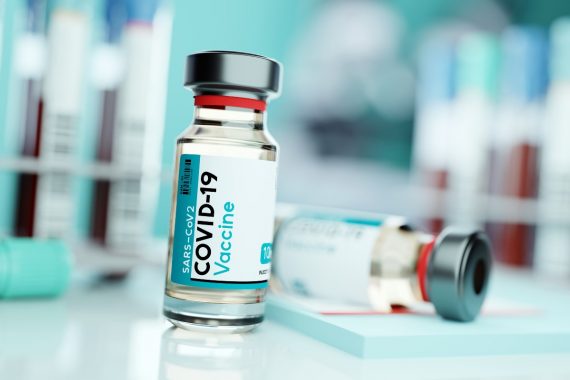Boosters significantly improve protection against symptomatic Covid-19 in adults aged 50 and over, a UKHSA study has shown.
The investigation, which is the first UK real-world study by UKHSA, showed that in adults aged over 49 who had two initial doses of AstraZeneca, protection against symptomatic Covid infection was 93.1% two weeks after they received a booster dose.
For those who had a primary course of Pfizer, protection was 90.4%.
The UKHSA compared vaccine effectiveness in people over 50 against symptomatic disease in ‘post-booster time intervals, with individuals at least 140 days post a second dose with no booster dose recorded’.
It also compared to unvaccinated individuals and to the 2-6 day period following a booster dose.
The study concluded that it ‘provides real world evidence of significant increased protection from the booster vaccine dose against symptomatic disease in those aged over 50 year of age irrespective of which primary course was received’.
After two doses of the Pfizer or AstraZeneca jabs, protection against severe Covid-19 begins to wane over time. Greater waning has been seen in older adults and those with underlying health conditions, the UKHSA said.
Because of this, the Government today accepted JCVI’s advice to roll out Covid booster jabs to people aged over 40.
At the Downing Street briefing, JCVI chair Professor Wei Shen Lim said: ‘Whilst we don’t yet have data on protection against hospitalisation and, unfortunately, people dying from Covid-19, we can expect the protection to be even higher than that figure of 93% because that’s what’s happened so far in the vaccine programme.’
He added: ‘[t]he data tells us the booster dose markedly strengthens existing protection, and will extend the duration of that protection against serious disease.’
Dr Mary Ramsay, head of immunisation at the UKHSA, said: ‘We know that in older age groups, protection from the first two vaccines is beginning to wear off, leaving millions that need extra protection as we head into winter.
‘That is why it is critical that you come forward for your booster as soon as you become eligible so we can drive down hospitalisations and deaths over the winter.’
In September, the JCVI recommended a booster programme open to everyone over 50 and people with underlying health conditions which make them vulnerable to Covid.
The JCVI said then that under-50s may not need a Covid booster jab necessarily, because they usually mount a stronger immune response, but that this would be reviewed ‘at a later date’.
GPs were told to prioritise offering Covid boosters to care home patients and staff by 1 November, with all care home residents now offered a booster jab by visiting GPs.
Meanwhile, the Government accepted new JCVI advice for 16-17-year-olds to become eligible for one dose of a Covid vaccine on 4 August.
At the time, the JCVI had not yet finalised advice for second doses for the cohort, but said the ‘the aim’ was for this to be ‘from’, but not necessarily at, 12 weeks following the first dose.
Pulse October survey
Take our July 2025 survey to potentially win £1.000 worth of tokens













